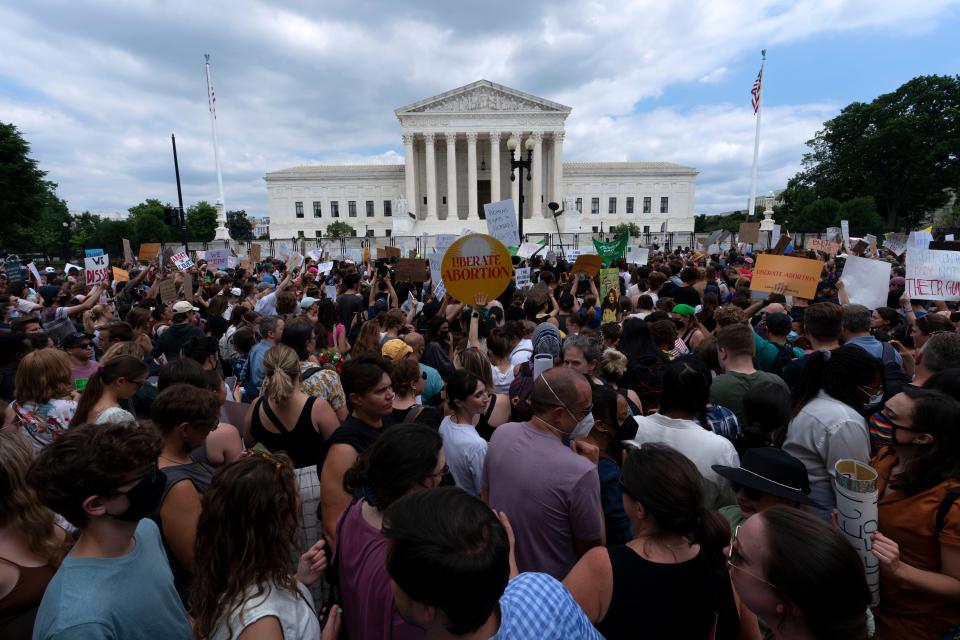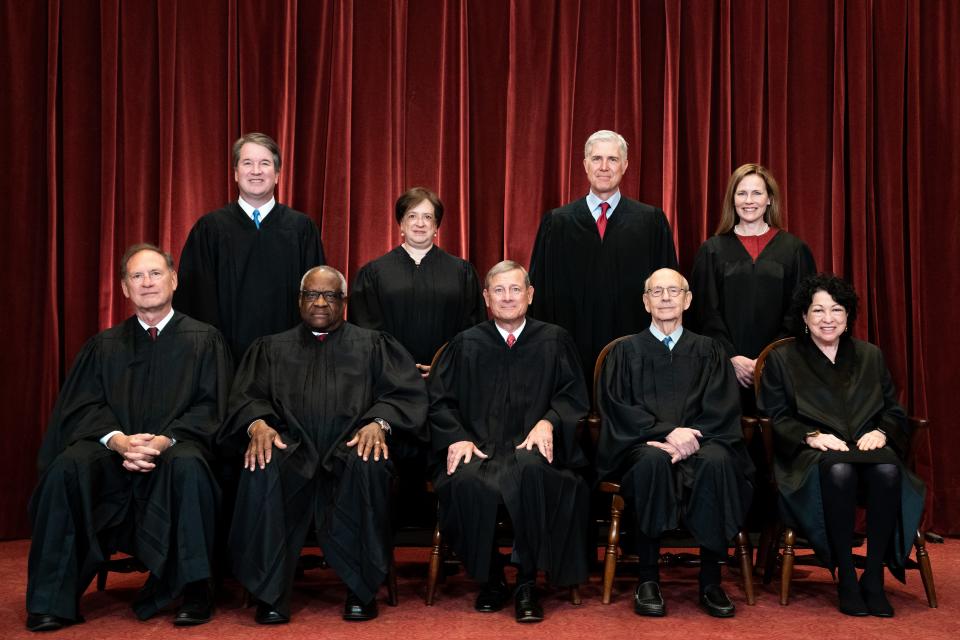A liar's guide for getting appointed to the U.S. Supreme Court
- Oops!Something went wrong.Please try again later.
- Oops!Something went wrong.Please try again later.
The Sisters of St. Joseph, who so rigorously guided me through parochial grade school, appear to have been misinformed during their considerable Bible studies on what, exactly, constitutes a lie.
The nuns told us – and this was later backed up by several priests during my required weekly trips to the confessional – that the Ninth Commandment, the one that goes: “Thou shalt not bear false witness against thy neighbor,” includes all forms of lying.
In other words, should you choose to dodge a question in order not to tell the truth (as I was accused of doing more than once during my tutelage) you are, essentially, lying.
Also, should you attempt to confuse the issue as a way of not expressing your true beliefs or intentions you are, essentially, lying.
Kavanaugh shows an exception to the rule

And, in broader terms, whenever you decide to be evasive, cagey, vague, prevaricating or shifty you are, essentially, lying.
The nuns told us that, in God’s eyes, these rules applied to all people, but particularly to those who claim some affiliation with the Christian faith or its precepts.
What the good sisters did not know, apparently, was that an exception had been made for candidates for the U.S. Supreme Court.
There must be.
Because otherwise the judges who most recently overturned Roe v. Wade would not have been appointed to the court in the first place.
Take Brett Kavanaugh, for example.
'Stare decisis' - Latin for ... ignore that

During his confirmation hearings there was a lot of talk about “stare decisis.” It is a Latin phrase. Lawyers like to use Latin phrases to justify the high cost of law school.
In simple terms, “stare decisis” means “let things stand as they were decided.” It means that judges respect the decisions made by judges before them. Particularly if a specific issue has come before a court more than once and been affirmed.
Like, for example, Roe v. Wade, which had been affirmed several times.
At his confirmation hearing, Kavanaugh called Roe an “important precedent of the Supreme Court that has been reaffirmed many times.”
He added, “Planned Parenthood v. Casey reaffirmed Roe and did so by considering the stare decisis factors. So Casey now becomes a precedent on precedent. It is not as if it is just a run-of-the-mill case that was decided and never been reconsidered … .”
Barrett and Gorsuch fooled 'em, too

Likewise, Amy Coney Barrett said, “What I will commit is that I will obey all the rules of stare decisis, that if a question comes up before me about whether Casey or any other case should be overruled, that I will follow the law of stare decisis … .”
She also said, “Judges can’t just wake up one day and say, ‘I have an agenda, I like guns, I hate guns, I like abortion, I hate abortion,’ and walk in like a royal queen and impose, you know, their will on the world.”
Then, there’s Neil Gorsuch, who said Roe v. Wade “is a precedent of the U.S. Supreme Court. It was reaffirmed in Casey in 1992 and in several other cases. So a good judge will consider it as precedent of the U.S. Supreme Court worthy as treatment of precedent like any other.”
They all fooled several senators, apparently. Or those senators are now pretending to be fooled.
Like Republican Sen. Susan Collins, who said of Kavanaugh, “I feel misled.”
What are the consequences for lying? Nothing
Notes from a conversation she had with Kavanaugh before his hearing has him saying, “Roe is 45 years old, it has been reaffirmed many times, lots of people care about it a great deal, and I’ve tried to demonstrate I understand real-world consequences.”
Another was Democratic Sen. Joe Manchin, who said, “I trusted Justice Gorsuch and Justice Kavanaugh when they testified under oath that they also believed Roe v. Wade was settled legal precedent and I am alarmed they chose to reject the stability the ruling has provided for two generations of Americans.”
Given that, what are the consequences for pulling a fast one in order to gain a lifetime appointment on the Supreme Court?
Nothing.
Nada.
Nyet.
No one has impeached a Supreme Court justice
Technically, there is an impeachment process that could be used to remove a Supreme Court justice. But no justice has ever been removed that way. And can you imagine any of the Republican senators who want Gorsuch, Kavanaugh and Barrett on the court going along with impeachment, no matter what they said during their confirmation?
Me, neither.
So, for ambitious jurists hoping someday to land a job on the highest court in the land, feel free to swear on the bible during your confirmation hearing then say whatever it takes to get the suckers to confirm you.
Just don’t tell the nuns.
Reach Montini at ed.montini@arizonarepublic.com.
For more opinions content, please subscribe.
This article originally appeared on Arizona Republic: Brett Kavanaugh shows to how lie your way onto the U.S. Supreme Court

